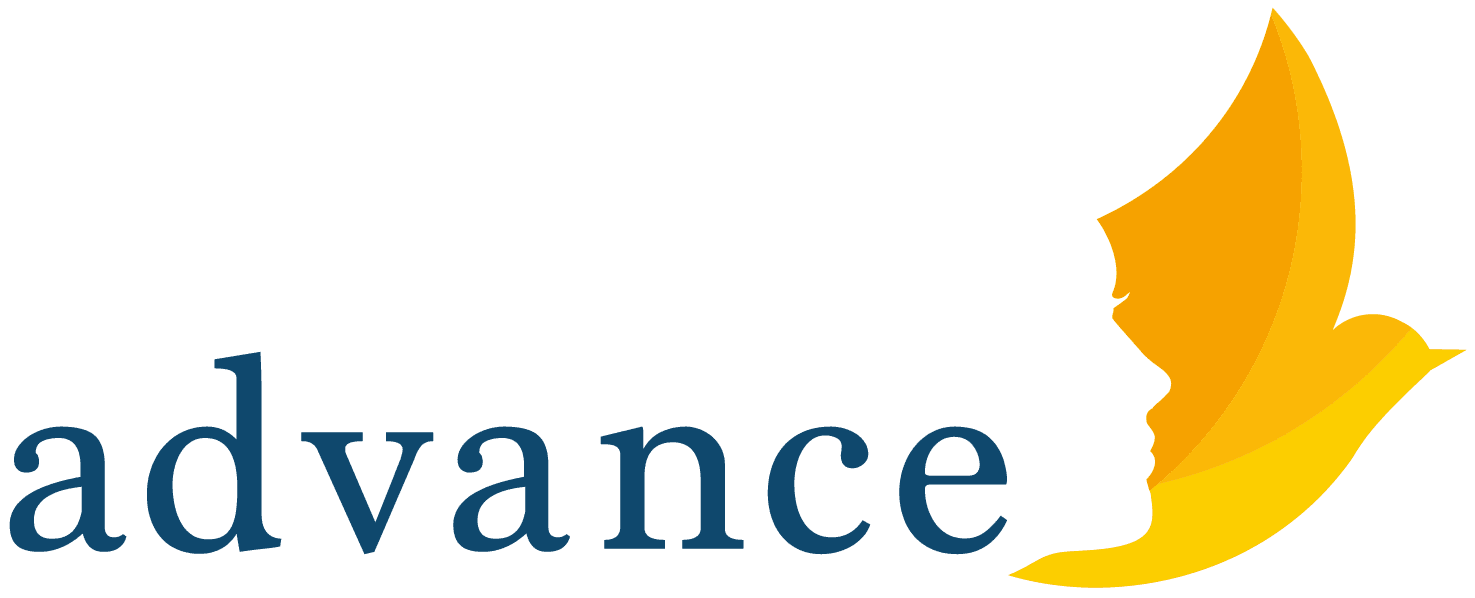What led you to being a Peer Mentor Coordinator?
In my first role with Advance Minerva, I was based in the Advance West London Women’s Centre every day and would ensure it was a safe, open environment for women to drop by whenever they needed it, even if just for a cup of tea and a chat.
It was a busy role because there were always so many groups attached to the different services we run, all coordinated through us or through our amazing partners. It allowed me to collaborate with amazing Peer Mentors in organising groups and activities, which allowed them to grow their skill sets.
Why is the service so important?
Advance Peer Mentors are an incredible asset to us, to the women we work with, to the organisation, but also to the wider community. They can break down some of the stigma that women internalise about themselves when they are perceived to have these labels attached to them such as ‘victim’ and ‘perpetrator ’. They are able to break down some of the barriers between the women we support and us as ‘professionals’ in situations where they might feel cautious or untrusting, as they are able to provide insight and perspective on how best to support individual women. This is especially important in the context of increasingly complex referrals, and underfunding.
They are also able to use their voices to tell their stories to local and national governments, and to the wider community so that we can all understand the experiences of what led women to be in contact with the criminal justice system better, and the barriers they face. They have also fed into and participated in research papers published by Advance such as ‘A place to go like this’ and ‘A safe space to learn about relationships’.
It is really inspiring for women supported through Advance to see other women further along in their journey, including those who have left the Peer Mentor service and are now in paid employment with Advance and with our partners across multiple sectors . I am so proud to work for an organisation that promotes lived experience, and I continue to work with colleagues to support more people into our workforce with lived experience as they are an invaluable asset to Advance and to the women we support.
By increasing the diversity of the criminal justice workforce and making it more representative of those it supports, this will ultimately create a more inclusive culture and in turn service users will feel that they belong and have influence in spaces they might not have done before. This will help those with lived experience to feel more empowered to influence change and feel safe to challenge systems and narratives.
The economic and societal benefits are also huge, considering some of these women might have gone on to re-offend, but instead were given support and an opportunity and they are now thriving and have now go on to support other women and professionals.
“Talking with my peer mentor helped me a lot. When I was low I would think back to our chats and this would give me hope.”
“I have really enjoyed my time volunteering with Minerva, especially all of the training that I found incredibly useful. I am now going into work with the Civil Service that volunteering with Minerva definitely helped me secure.”
Any last thoughts?
It is so important that any one with the ability to affect change thinks very carefully about the Female Offender Strategy (and the Female Offender Delivery Plan) and ensures it is taken seriously. In the last few years, I have felt like the sector has been let down and some of the promises made to improve outcomes for women in contact with the Criminal Justice System haven’t been enacted.
Most importantly we must make sure we are effectively supporting women, and not criminalising them unnecessarily. I speak to women who tell me that if they had had a service like Diversion when they needed it, then their life would have been different, that they might have been safe, and their family might have been safe.
It is so important where possible women are diverted to the community to be supported by services like ours, and when they are here that those services are funded properly which includes Peer Mentor services because that lived experience is fundamental in supporting women.
-Ends-
Notes
- Female Offender Strategy 2018: https://www.gov.uk/government/publications/female-offender-strategy
- Female Offender Delivery Plan 2023: https://www.gov.uk/government/publications/female-offender-strategy-delivery-plan-2022-to-2025#:~:text=The%20Female%20Offender%20Strategy%20Delivery%20Plan%20highlights%204%20key%20priorities,managed%20successfully%20in%20the%20community
- Advance Diversion Programme: https://www.advancecharity.org.uk/what-we-do/criminal-justice-services/diversion-for-women/London’s Women Diversion Service was launched in September 2019 led by Advance and in partnership with Women in Prison, Hibiscus Initiatives and Pecan, across four London boroughs.
About Advance
- The Minerva service is part of our wider Criminal Justice services. Advance support’s women in contact with the criminal justice system in Women’s Centres across London, Hampshire, Kent, Thames Valley, Essex, Hertfordshire and Bedfordshire. Find out more
- Advance has two volunteer mentor services: The Minerva Peer Mentor service is in its 6th year of service and is made up of women with lived experience of the Criminal Justice System, who support women and girls to recover from the trauma of their experiences so that they can move forward with their lives. The Maia Peer Mentor service is made of omen with lived experience of domestic abuse, and/or other related challenges to support young women and girls to make positive changes on their own terms and achieve their goals and aspirations.
- Women must be referred to Advance, via statutory services or the charity’s self-referral scheme. For more information about who Advance is able to support, please visit Get help
- For facts and statistics about domestic abuse and women in the criminal justice system, as well as Advance’s work, please visit Our impact


